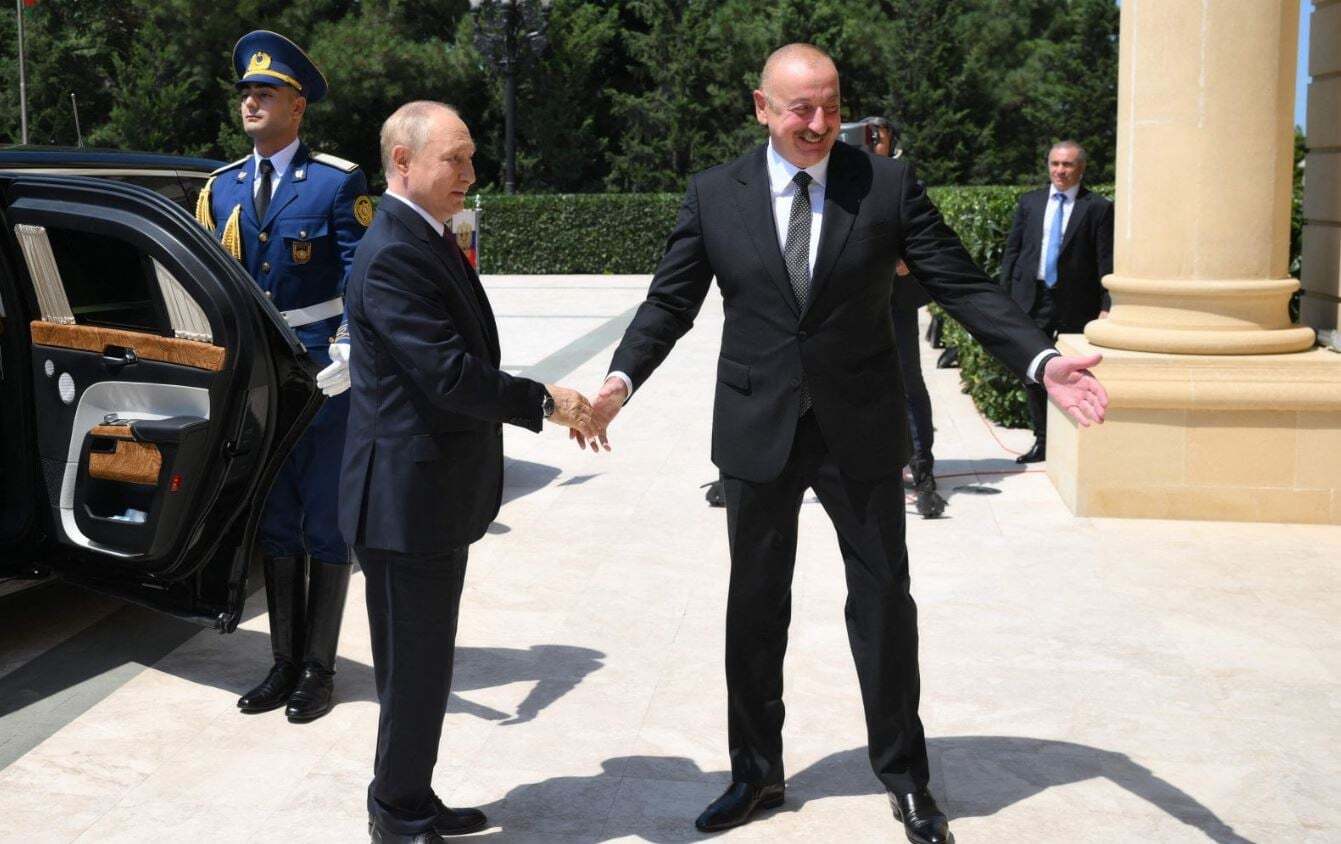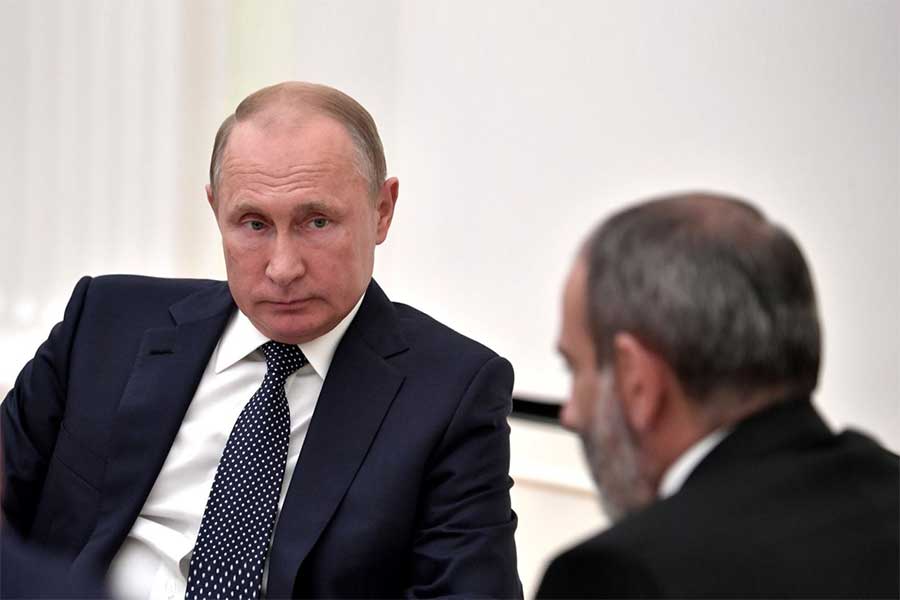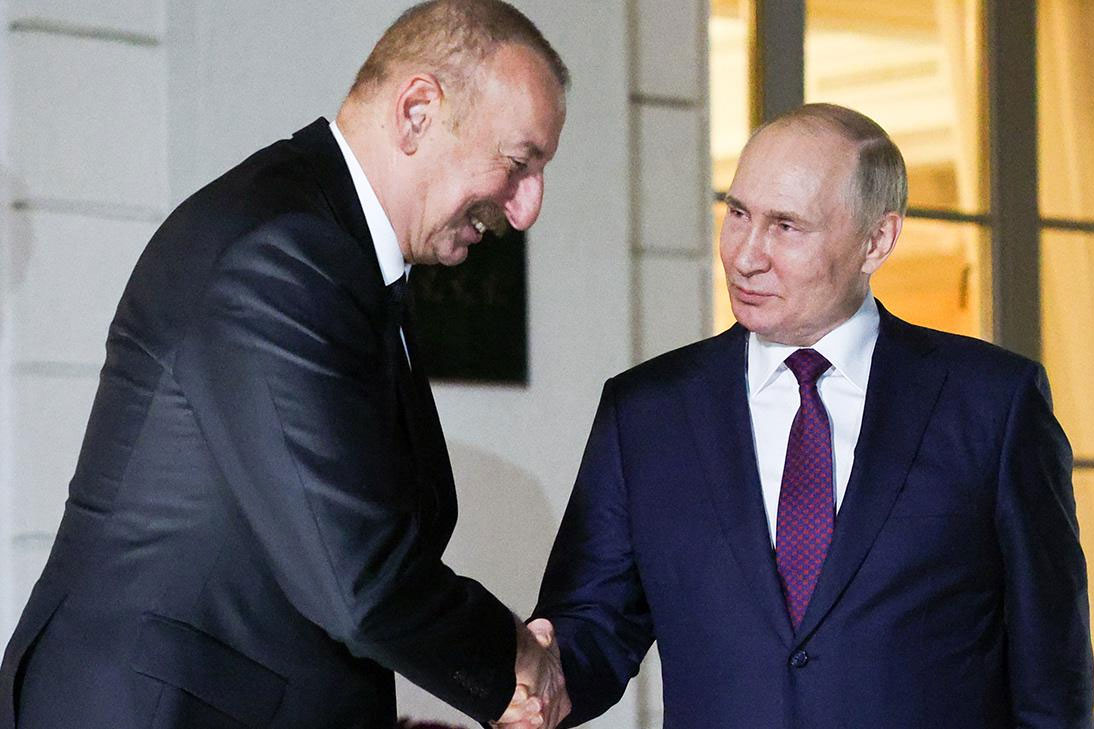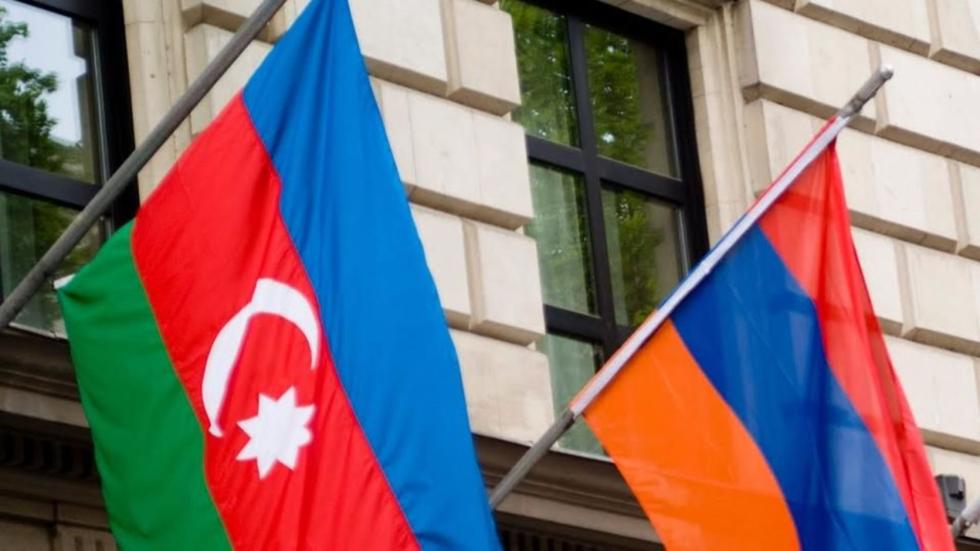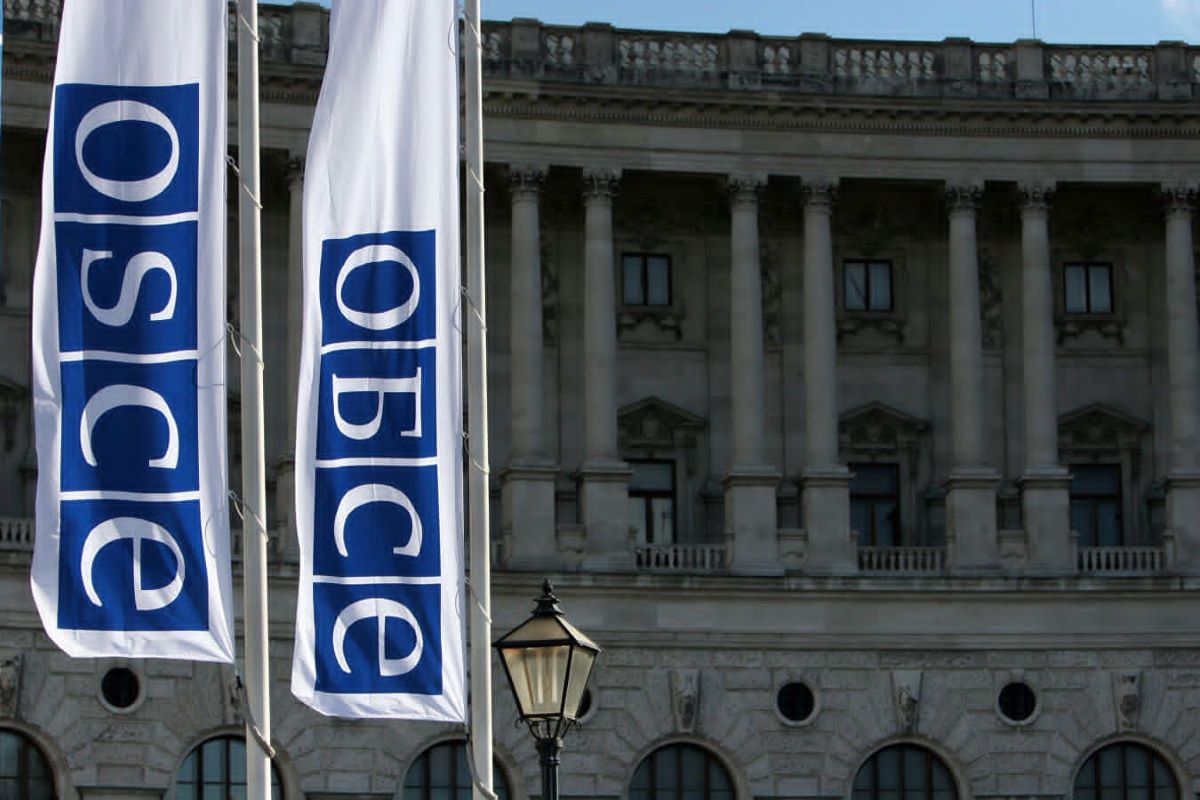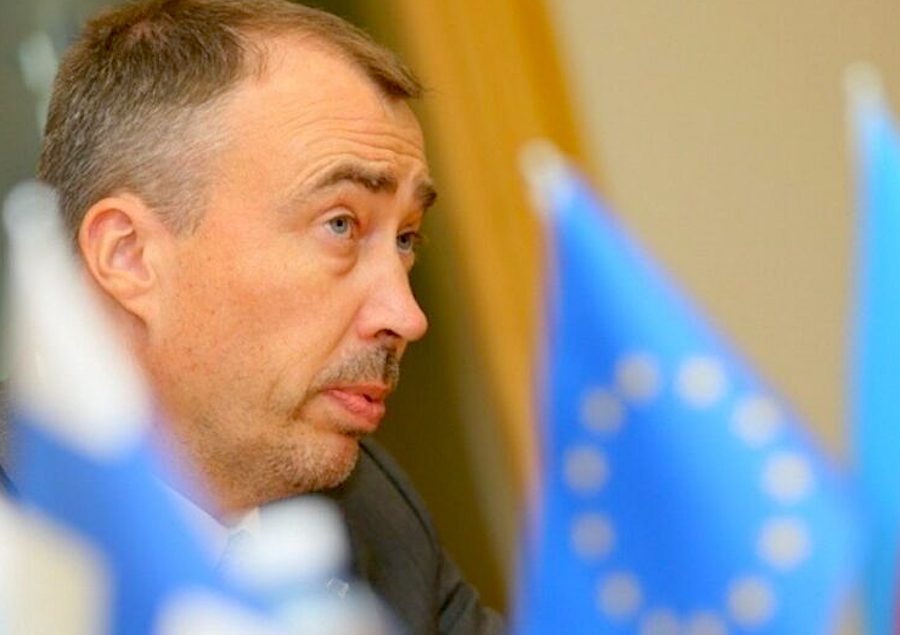“Sign a peace treaty on already agreed terms”: Pashinyan's proposal to Baku
Pashinyan’s August press conference
Ahead of the press conference, Armenia presented Azerbaijan with a new proposal: to sign a peace treaty based on already agreed-upon clauses and address the remaining disagreements later. Armenian prime minister Nikol Pashinyan made this announcement during a press conference on Saturday.
He stated that out of 17 articles in the treaty, 13 are fully agreed upon, and three are partially agreed. However, he did not specify which issues remain unresolved.
The prime minister emphasized that even the most “perfect agreements” do not resolve all issues.
“It is anticipated that after signing the peace treaty, diplomatic relations will be established between the two countries. The treaty will serve as an additional platform for discussing all potential issues,” he noted.
Key statements from the prime minister’s press conference.
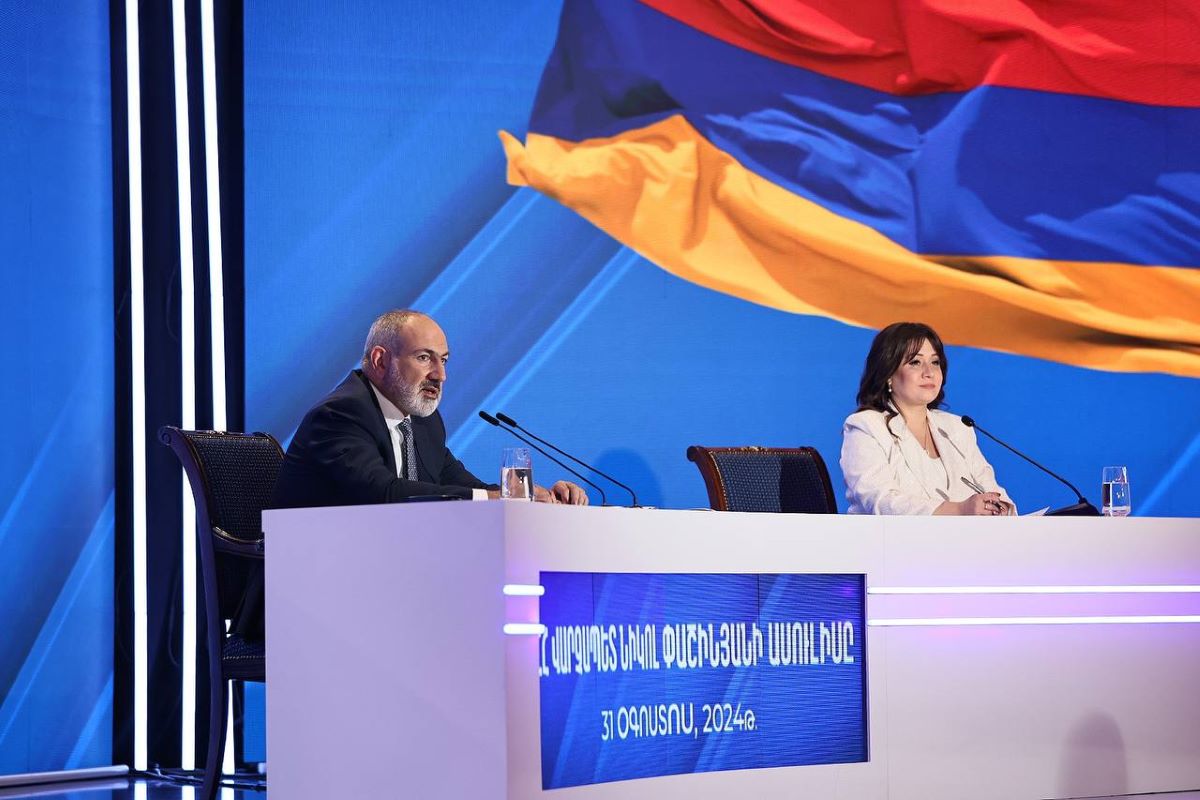
- Opinion from Yerevan: “A Russian-Azerbaijani tandem is forming”
- “Cut the demagoguery”: Opinion from Yerevan on how Armenia and Azerbaijan can achieve peace
- Yerevan and Baku to exclude one contentious issue from the peace agreement. What’s next?
“Yerevan and Baku are negotiating bilaterally; Moscow is aware”
Journalists asked prime minister Nikol Pashinyan about Russia’s current role in resolving Armenian-Azerbaijani relations. He responded that Armenia values the support of all international partners in the peace process. However, for a considerable time, negotiations with Azerbaijan have been conducted in a bilateral format:
“The mutual understanding was that, at this stage, we would work in a bilateral format. And as long as we can make progress in this format, I believe it is the correct one. I conveyed this clearly and openly to the Russian president during our last phone conversation.“
According to Pashinyan, the bilateral format has shown noticeable effectiveness.
He cited the December 2023 agreement, which led to the return of Armenian prisoners of war and the signing of a regulation for the joint work of delimitation commissions.
At the same time, he did not rule out the possibility of cooperating with partners in other formats for specific cases and issues.
“Armenia is not sabotaging the unblocking of communications”
At the same time, the Armenian prime minister dismissed the possibility of Russian mediation in the issue of unblocking regional communications, stating that “this country accuses Armenia of sabotaging this matter.”
This refers to a statement by Russian foreign minister Sergey Lavrov, which the Armenian authorities found outrageous. The Armenian Ministry of Foreign Affairs also responded.
“Unfortunately, regarding the communications through Armenia’s Syunik region, it is precisely the Armenian leadership that is sabotaging the agreement signed by prime minister Nikol Pashinyan. It is difficult to understand the rationale behind such a position,” Lavrov said in an interview with Russia’s Channel One.
“The institution making such a statement disqualifies itself as a mediator. Where have you seen a mediator making accusations, especially unfounded ones?
Regional communications have still not been unblocked, partly due to several interpretations by our Russian partners that are not in line with the logic of the document [referring to the November 9 statement cited by Lavrov] and contradict it,” Pashinyan explained.
According to the prime minister, Yerevan is very interested in unblocking communications. He recalled the “Crossroads of Peace” project, which is an initiative of his government:
“Armenia is ready to provide communications. However, the country’s sovereignty, jurisdiction, and territorial integrity cannot be questioned [referring to Armenia’s unwillingness to cede control of these roads to any other country, including Russia, which might be claiming control].”
The prime minister stated that Armenia is ready to start implementing the “Crossroads of Peace” project “as soon as tomorrow.”
“Ready to meet Aliyev, including on the border”
The prime minister noted that during the European Political Community summit in London, there were discussions and attempts to create the impression that Armenia had rejected the offer to meet with the Azerbaijani president:
“Armenia has not refused to meet. I personally suggested to the president of Azerbaijan, not in person but through diplomatic channels, that a meeting take place in a bilateral format.”
He mentioned proposing a bilateral format because mutual understanding had been established on this matter in the previous period. Pashinyan stated that he is ready to meet with Ilham Aliyev, including on the Armenian-Azerbaijani border, where the delimitation commission heads are meeting.
Will Armenia participate in COP-29 in Baku?
According to the Armenian prime minister, a decision will be made in advance:
“But I must state clearly that we do not have a decision yet. Of course, the overall situation, current processes, and the atmosphere cannot but influence this decision.”
He emphasized that nothing can be ruled out, but the decision will be based on the situation at the time it is made.

“Armenia sees issues with Azerbaijan’s Constitution”
Azerbaijan frequently claims that the only obstacle to signing a peace treaty is Armenia’s constitution. Azerbaijani authorities and experts argue that the constitution contains territorial claims against their country, particularly criticizing the reference to the Declaration of Independence in the preamble, which mentions the reunification of Armenia and Nagorno-Karabakh.
In response to a question about amending Armenia’s constitution, prime minister Pashinyan noted that the content of the Declaration of Independence does not automatically transfer to the constitution. He provided an example: according to the declaration adopted in 1990, the Armenian armed forces were supposed to be subordinated to the country’s legislative body, but since the constitution was adopted in 1995, the army has been under the command of the president.
Meanwhile, Pashinyan stated that Azerbaijan’s constitution contains territorial claims against Armenia. He emphasized that Azerbaijan considers itself the successor to the Azerbaijan Republic of 1918-1920, which, according to the map presented by the Entente in 1919, claimed all of what is now Armenia’s Syunik and Vayots Dzor regions, as well as parts of Tavush, Gegharkunik, Ararat, Lori, and Shirak regions.
The Armenian prime minister acknowledged that Yerevan is also concerned about this but does not demand that Baku amend its constitution, as doing so would be “deliberately creating a deadlock.”
“We do not raise this issue because the peace treaty includes a provision stating that neither party can use its internal legislation as an excuse for not fulfilling the treaty’s provisions,” he explained.
“Azerbaijan can buy weapons, but Armenia cannot?”
Baku has accused Yerevan of revanchism due to recent military-technical cooperation between Armenia and France and India. The Armenian prime minister considers this accusation unfair. He asserts that Armenia has no aggressive intentions and emphasizes that any country has the right to defend itself and maintain a strong and capable army:
“Why can Azerbaijan purchase weapons from Italy, while Armenia cannot purchase weapons from France? Why can Azerbaijan buy weapons from Pakistan, while Armenia cannot buy weapons from India?“
Pashinyan pointed out that while Baku accuses the West of supposedly arming Armenia, Azerbaijan itself acquires weapons from Slovakia, Serbia, Bulgaria, and other countries. According to the Armenian prime minister, Yerevan is not seeking conflict and has proposed creating joint mechanisms for arms control and monitoring ceasefire violations. However, Azerbaijan has not responded to these proposals.
“If we decide to withdraw from the November 9 document, we will announce it”
The prime minister also addressed whether Armenia intends to withdraw from the tripartite statement signed in November 2020. This document marked the cessation of hostilities in Nagorno-Karabakh in 2020. Pashinyan emphasized that if there were such an intention, it would be announced openly:
“I see no reason for Armenia to withdraw its signature. Why should we withdraw it to prove that we are renouncing something? We are not renouncing anything. We have evidence that, unfortunately, the other party or parties to this statement have failed to meet their obligations. This needs to be noted.”
At the same time, he stressed that the document should be assessed in its entirety, not piecemeal:
“In many cases, when our Russian partners discuss the tripartite statement, I regret that they essentially avoid addressing issues such as prisoners of war, hostages, and other detainees. Before emphasizing the importance of the November 9 statement, one should start by reading it from the first article and see who was supposed to do what but failed to do it.”
“I consider the return to Nagorno-Karabakh unrealistic”
One of the journalists asked Pashinyan why he is not discussing the return of Armenians to Nagorno-Karabakh and what he fears.
“I did not sign the decision to dissolve the NKR. On the contrary, before this decision was made, there was a change in power that was encouraged and welcomed by well-known circles operating in Armenia [referring to the opposition],” he replied.
The prime minister stated that he considers the return of Armenians to Nagorno-Karabakh unrealistic:
“With the notions and formulations that some representatives of the NKR, former officials, use to discuss this issue, it is unrealistic.”
However, he did not specify what he meant by these notions or formulations. He only noted that “the way the problem is being presented” contradicts Armenia’s national interests.
“How do I measure Armenia’s national interest? By internationally recognized territories and the jurisdiction of the Republic of Armenia,” he concluded.











